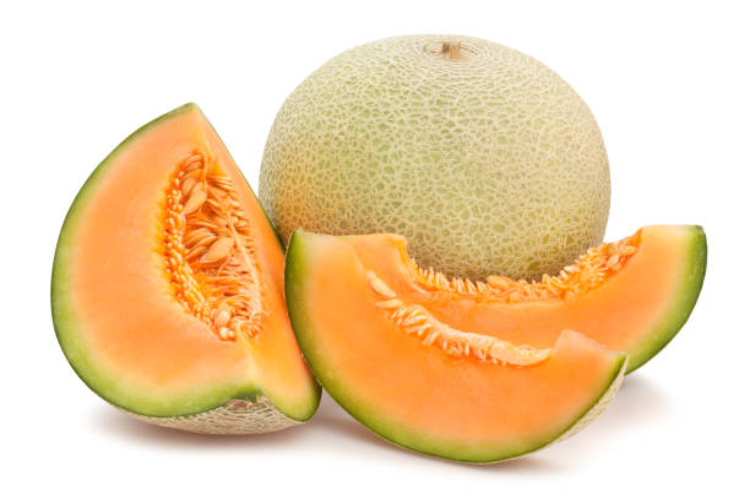Preface:
Ah, the sweet, stimulating taste of a ripe melon on a hot summer day! Melons aren’t just succulent; they are also packed with essential nutrients and offer a hydrating boost. From the juicy watermelon to the sweet cantaloupe, melons come in a variety of flavors and colors, each offering its unique charm. Let’s dive into the awful world of melons and discover what makes them so special.
Understanding Melons:
Melons belong to the Cucurbitaceae family, which also includes cucumbers, pumpkins, and squash. They thrive in warm climates and are frequently associated with summer due to their peak seasonality. Melons are generally characterized by their thick rind, juicy meat, and cornucopia of seeds. The meat can range from pale green to vibrant orange, depending on the variety.
Types of Melons:
1. Watermelon Arguably the most popular melon, watermelon is known for its crisp texture and juicy agreeableness. It comes in colorful sizes, from small particular- sized melons to large bones perfect for participating at summer gatherings.
2. Cantaloupe With its orange meat and netted skin, cantaloupe has a distinct aroma and a sweet, musky flavor. It’s frequently enjoyed fresh or added to fruit salads for a burst of flavor.
3. Honeydew Honeydew melons have a pale green meat and a sweet, mild flavor. They’re generally used in fruit salads, smoothies, or enjoyed on their own as a stimulating snack.
4. Galia Melon This mongrel melon combines the agreeableness of cantaloupe with the sweet flavor of honeydew. It has a greenish- unheroic meat and a unique taste that appeals to numerous.
5. Canary Melon With its bright unheroic skin and pale green meat, the canary melon offers a subtle agreeableness evocative of pear or banana. It’s a stimulating choice for those looking to try commodity new.
Nutritive Benefits:
Melons aren’t only succulent but also nutritional. They’re low in calories and fat while being rich in essential vitamins and minerals. Then are some crucial nutrients set up in melons.
1. Vitamin C Melons are an excellent source of vitamin C, which is essential for a healthy vulnerable system and collagen product.
2. Vitamin A numerous melons, particularly those with orange or unheroic meat, are rich in vitamin A, important for maintaining healthy vision and skin.
3. Potassium Melons contain potassium, a mineral that helps regulate blood pressure and maintain proper muscle function.
4. Water As their name suggests, melons have a high water content, making them a hydrating choice, especially during hot rainfall or after physical exertion.
Health Benefits:
In addition to their nutritive value, melons offer colorful health benefits.
1. Hydration Due to their high water content, melons can help keep you doused , particularly important during warmer months or after exercise.
2. Antioxidants Melons contain antioxidants like lycopene and beta- carotene, which help cover cells from damage caused by free revolutionaries.
3. Digestive Health The fiber content in melons supports healthy digestion and can help help constipation.
4. Heart Health Potassium in melons plays a part in regulating blood pressure, reducing the threat of heart complaint and stroke.
How to elect and Store Melons:
When choosing melons, look for bones A ripe melon should have a sweet aroma and yield slightly to pressure at the stem end. To store melons, keep them at room temperature until ripe, also chill them to decelerate down growing and maintain newness. formerly cut, store melon pieces in an watertight vessel in the refrigerator and consume within a many days for the stylish flavor.
Fun Ways to Enjoy Melons:
Melons are incredibly protean and can be enjoyed in colorful ways.
1. Sliced Enjoy melon slices on their own for a stimulating snack or cate.
2. Fruit Salad Combine melon cells with other fruits like berries, grapes, and kiwi for a various and scrumptious fruit salad.
3. Smoothies Blend melon gobbets with yogurt, honey, and ice for a succulent and hydrating smoothie.
4. Gazpacho Try making a stimulating gazpacho haze with watermelon, cucumber, and tomatoes for a unique twist on a classic dish.
5. Sorbet Freeze pureed melon with a touch of bomb juice and honey for a manual sorbet that is both healthy and succulent.
Conclusion:
Melons aren’t just a summer treat; they are a nutritional addition to any diet. Whether you prefer the terseness of watermelon, the agreeableness of cantaloupe, or the subtle flavor of honeydew, there is a melon variety to suit every palate. So coming time you are pining commodity refreshing, reach for a juicy melon and savor the taste of summer!

